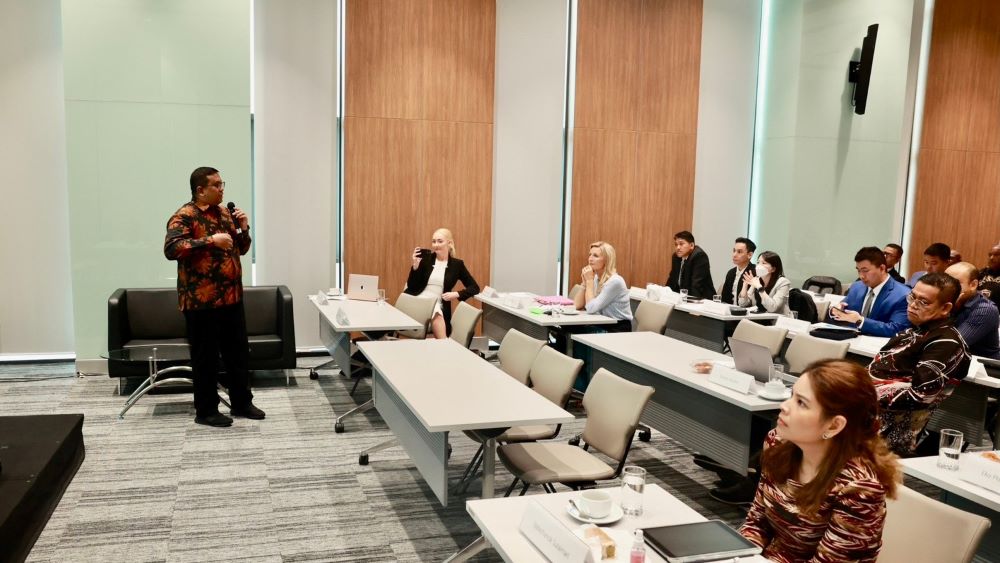More than 80 nominees from Thailand, Indonesia, Malaysia, Papua New Guinea, Vietnam and Fiji participated in the meeting in Bangkok, Thailand 9-11 May.
Setting the scene for the event, honest, well founded and encouraging opening remarks were delivered by Dr. Phiset Sa-ardyen, Executive Director of the Thailand institute of Justice (TIJ), Ambassador of Norway H.E. Astrid Emilie Helle, Julien Garsany, UNODC Deputy Regional Representative for Southeast Asia and Pacific, Pol.Maj. Suriya Singhakamol from the Department of Special Investigations and Pol.Gen. Pirawuth Prissanaroon from the Royal Thai Police. The presenters highlighted the importance of transparency and a need to invest in the professionalisation of the police.
Sharing knowledge and experience
Indonesian delegates Assistant Chief Commissioners of Police Eko Novan Prasetyopuspito, S.I.K.,M.Si and Hardi Dinata, S.I.K,M.M provided the introductory lecture on investigative interviewing, and shared their experience with piloting the methodology at the Wonosobo police district. Testimonies from staff and suspects at the police station showed the effectiveness of the methodology, and served as an inspiration for the meeting participants.

The participants, primarily police officers and representatives of the prosecution shared their experience and challenges with interviewing and interrogation practices country by country.
The event concluded with a number of recommendations that were agreed by the representatives in plenary, as reflected below.
The group recommended to, subject to national laws and procedures:
- Strengthen capacity for investigative interviewing at national, regional and international level by:
- UNODC, NCHR and other partners to provide training and training of trainers at domestic, regional and international level including through the promotion and translation into regional languages of the eLearning package
- National Training academies to include investigative interviewing in training for new and recently graduated officers and the regular upgrading of skills including to address emergent technologies and crime trends
- UNODC and NCHR to provide technical assistance in the area of policing including to review processes and procedures, and provide sustainable capacity-building at regional and national level
- Strengthen international cooperation between law enforcement in the countries of the region, including through bilateral agreements, where necessary
- Establish an informal regional network of practitioners to exchange information on investigative interviewing
- Promote recognition of the importance of ensuring the recruitment of officers with relevant language skills, and/or strengthening mechanisms to access interpreters
- Review of procedures and processes, and take steps to reduce the workload on investigators (including by appropriate use of discretion and diversion)
- Allocation of resources to adapt interview rooms and procedures to align with investigative interviewing method (i.e. remove uniforms, refurbishment, recording of interviews)
- UNODC and NCHR to advocate with members of parliament, policy makers and senior law enforcement officers to explain the nature and burden of the work of investigators, and to ensure high level support for the implementation of investigative interviewing
In Thailand:
- Entry into force of new acts on torture and enforced disappearances should provide an opportunity to advance the use of investigative interviewing
- Commitment by RTP and DSI academies to include investigative interviewing in training curriculum.
Want to learn more about NCHR's work on advancing investigative interviewing? Visit our Rule of Law website.
